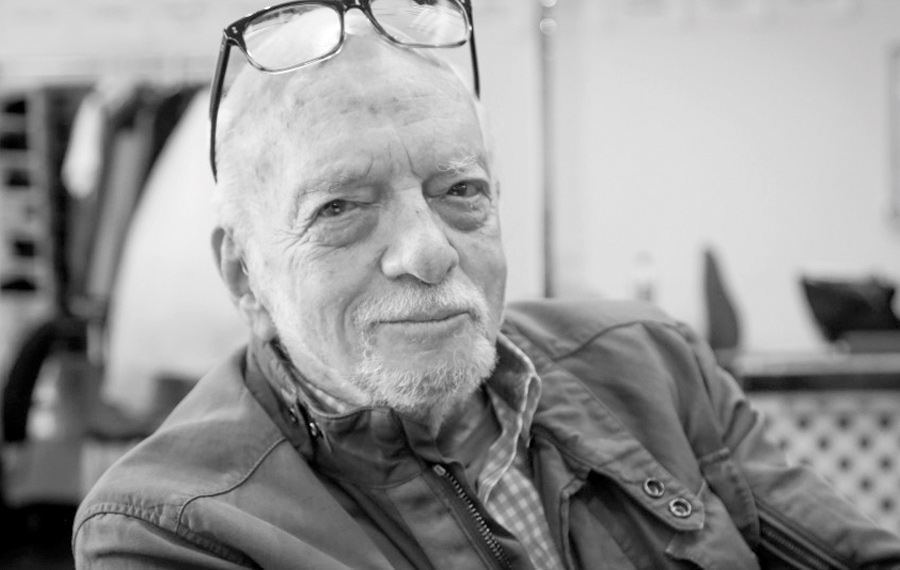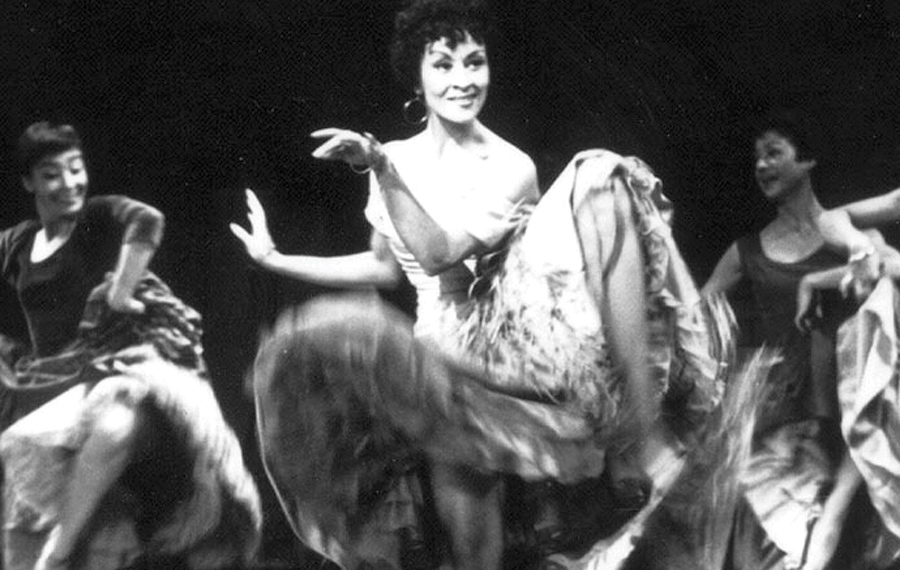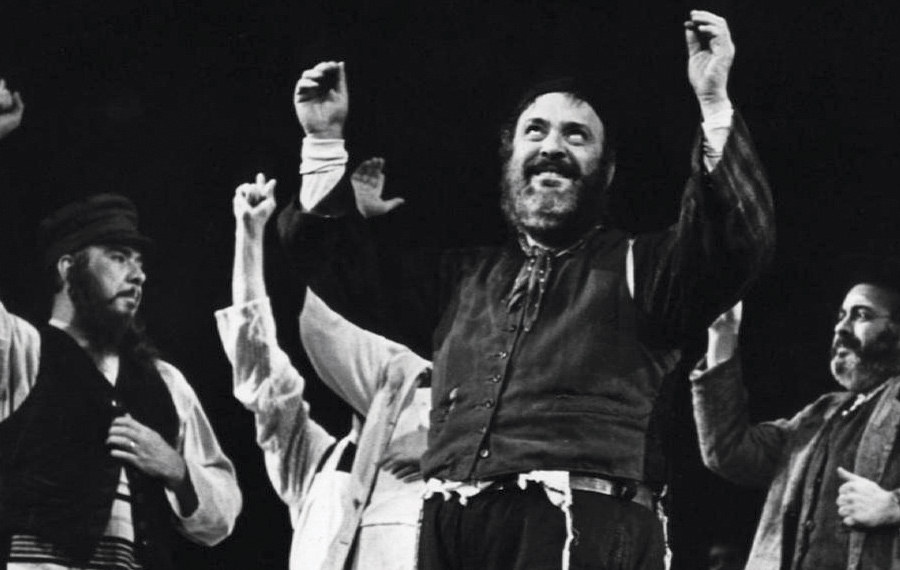
Legendary Broadway producer and director Hal Prince died July 31 in Reykjavik, Iceland. He was 91.
Prince had a hand in some of Broadway’s landmark productions, including “West Side Story,” “The Pajama Game,” “Damn Yankees,” “Evita” and “The Phantom of the Opera.” He also was the primary force behind what became known as the “concept musical” (productions born of an idea or a message as opposed to a story) in shows such as “Cabaret,” “Company” and “A Little Night Music.”
For Jewish audiences, Prince is best known for producing the 1964 hit “Fiddler on the Roof.” Based on the short stories of Sholem Aleichem, it was shunned by some investors as being “too Jewish” to reach a mainstream audience, but the initial Broadway production, directed and choreographed by Jerome Robbins, ran until 1972. With 3,242 performances, it held the record for longest-running musical until 1979 when it was supplanted by “Grease.”
Prince was born Harold Smith Jr. in New York City on Jan. 30, 1928, the son of Harold Smith Sr. and Blanche. His parents divorced when he was a young boy, and his mother quickly remarried Milton Prince. Both his birth and adoptive fathers were stockbrokers and the Prince family was well-off. In his memoir, “Contradictions,” Prince described his upbringing as “privileged, upper-middle, lower-rich class, Jewish, both parents of German families which settled here soon after the Civil War.”

Prince’s mother was a regular theatergoer and Prince caught the bug. He attended the University of Pennsylvania with an eye to becoming a playwright. But after graduating at 19, Prince got a job working for George Abbott, one of Broadway’s pre-eminent director-producers. He answered phones and made deliveries before he was drafted into the Army and served for two years in post-World War II Germany. On his return to the United States, he went back to work for Abbott, eventually becom-ing an assistant stage manager for 1952’s “Wonderful Town.”
“His openness to things he didn’t immediately respond to was one of the things that made him such an ideal collaborator.” — Stephen Sondheim
Composer Stephen Sondheim, who worked with Prince on nine productions (starting with 1957’s “West Side Story,” which Prince co-produced), said Prince “learned the business from the ground up, so he knows how to order a pair of shoes, which many producers don’t.”
Prince befriended Richard Griffith, another stage manager, and they joined forces to produce shows. They were a success from their first production, 1954’s “The Pajama Game.” They optioned Richard Bissell’s comic novel “7½ Cents,” commissioned Richard Adler and Jerry Ross to write the score, hired a talented but little known young choreographer by the name of Bob Fosse, and hired Abbott to direct. It was a hit, running over 1,000 performances and winning the Tony Award for Best Musical, the first of Prince’s record-setting 21 Tonys.

Prince went on to produce “Damn Yankees” a year later, “Fiorello!” in 1959, “A Funny Thing Happened on the Way to the Forum” in 1962 and “Fiddler” in 1964. He branched out to directing in the early 1960s and had his first directorial hit with 1968’s “Cabaret.” Prince came up with the idea of having a leering, white-faced Emcee introduce the numbers and keep up a steady patter, a role that made Joel Grey
a star.
The 1970 hit “Company” was the first Sondheim work Prince directed. They would work together on five more shows: “Follies” (1971), “A Little Night Music” (1973), “Pacific Overtures” (1976), “Sweeney Todd: The Demon Barber of Fleet Street” (1979) and “Merrily We Roll Along” (1981).
By the 1980s, Prince had left the “concept musical” behind, and with “Evita” (1979)
and “The Phantom of the Opera” (1986), both featuring hit Andrew Lloyd Webber scores, ushered in the era of musical spectaculars. He returned to edgier material, reuniting with the songwriting team of John Kander and Fred Ebb, whom he had worked with on “Cabaret,” for 1993’s “Kiss of the Spider Woman.”
He produced a hit revival of “Show Boat” in 1994 and his final credit was “Prince of Broadway” in 2015, a revue of songs from his past productions.
The New York Times interviewed a dozen Broadway stars about Prince, and many spoke of how he coaxed the best work out of them by giving them the freedom to try new things. Sondheim praised Prince’s “openness to things he didn’t immediately respond to,” calling it “one of the things that made him such an ideal collaborator.” Patti LuPone, who played the title role in “Evita,” remembered Prince pulling her aside to tell her not to worry when rumors she was being replaced were published. Sarah Brightman, who starred in the original producton of “Phantom,” said Prince “gave me a lot of confidence because he actually trusted what my line of thought was.”
On July 31, the lights on all the marquees in New York’s Theater District were dimmed in Prince’s honor.
Prince is survived by his wife, Judy Chaplin (whom he married in 1962); his son, Charles; daughter, Daisy; and three grandchildren.





















 More news and opinions than at a Shabbat dinner, right in your inbox.
More news and opinions than at a Shabbat dinner, right in your inbox.